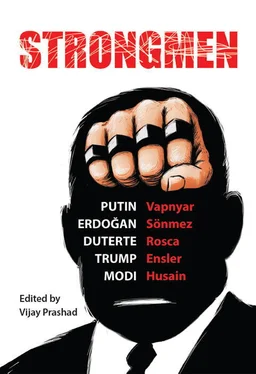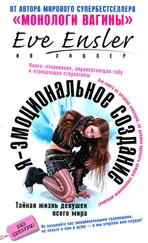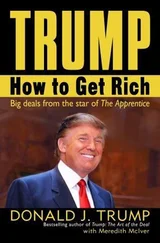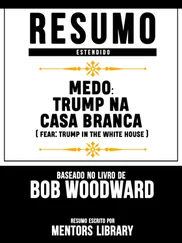STRONGMEN
Trump ♦ Modi ♦ Erdoğan ♦ Putin ♦ Duterte
Edited by Vijay Prashad
El odio se ha formado escama a escama,
Golpe a golpe, en el agua terrible del pantano,
Con un hocico ileno de légamo y silencio.
Hatred has grown scale on scale,
Blow on blow, in the ghastly water of the swamp,
With a snout full of ooze and silence.
—Pablo Neruda, “Los Dictadores”
INTRODUCTION
The Return of the Monster
Vijay Prashad
The crisis consists precisely in the fact that the old is dying and the new cannot be born. In this interregnum, a great variety of morbid symptoms appear.
—Antonio Gramsci,
Prison Notebooks , 1930
THE MONSTERS have returned. They are led by strongmen—by Trump, by Modi, by Erdoğan, by Duterte, and by others. But these are not really strong men. These are men who pretend to be strong, who hide behind ugly rhetoric that befuddles the masses, but who are nothing other than cowardly when it comes to social reality. Rather than confront the difficult problems that face us—problems of unemployment and starvation, humiliation and inequality—they take refuge in an easy rhetoric of hate. It is so much easier to hate than to spend the time necessary to build the ramparts of a future world, one where the catastrophic social problems of today no longer define human existence. But the monsters of today—the morbid symptoms of this period of transition—do not care to tackle the problems of society. They blink at them, nod at them, and then move on to harsher prescriptions.
At first glance, these monsters appear to be like the fascists of the last century—Germany’s Adolph Hitler, Italy’s Benito Mussolini, Spain’s Francisco Franco, and Japan’s Hideki Tojo as well as Portugal’s António de Oliveira Salazar, Romania’s Ion Antonescu, and South Africa’s D.F. Malan. These men and their regimes are defined by the ugliness of their political agendas as well as their rhetoric—bilious against social groups that they abhor. Violence is both their strategy and their tactic. The current monsters even resemble the monsters of the 1960s and the 1970s, the men who led the neo-fascist states through the military juntas (Argentina, Brazil, Chile, Greece, Indonesia, and Thailand); these were weak states that used force to extract resources at low prices for export and to produce markets for high value imported goods—all at the behest of multinational corporations and imperial centers.
But the current monsters are a shadow of the older fraternity. They do not advertise themselves as fascists, neither wearing the same emblems nor using the same rhetoric. Some of their followers carry swastikas on their signs, but most of them are more careful. They do not wear the uniform of the military, nor indeed call the military out of the barracks to lend them a hand. Their fascism is couched in modern rhetoric—in the terms of development or trade, in the terms of jobs and social welfare for their nationals, in the language of threats from migrants and drug gangs. But the older language of the older monsters cannot stay away. It makes its appearance when the new monsters speak of migrants and of the vulnerable, of the social and political dissidents. They are treated as vermin that need to be exterminated. The military comes to the border or goes into the slums, bullets flying. Dislocation of society is their goal. Older, decadent language can be heard, the language of death and disorder.
♦
Why have the monsters returned? They made their appearance in the West in the 1920s and 1930 when the workers’ movement had asserted itself and when capitalism went into a tailspin. At that time, the monsters came to suffocate the workers’ movement and to steady the capitalist ship. They broke up the parties of the Left and absorbed a section of the workers into their outfits. They attacked society, attacked its institutions and its confidence—leaving the militant workers of the Left vulnerable. The monsters, “swollen with rhetoric” as Gramsci put it, chastised society for its desire for a better world. Intimidation was the order of things, the fulcrum upon which the monsters were able to balance their own will to power with the desire to produce a social order to advantage big business. But even the capitalist had to appear to face their wrath. They took the capitalists into a room and scolded them for being insufficiently patriotic to capitalism. The class of capitalists had to protect capitalism against their individual capitalist interests. The monsters arrived to save capitalism from the militancy of the workers and the cupidity of the capitalists.
The monsters told people to fear their minions, the men who marched in ironed uniforms and with polished jackboots. If anyone strayed from the norm, the men in boots would descend on them. These fascists were the detritus of a decadent capitalism. Their ambitions were destroyed in the fires of war, their project compromised by their disgusting violence against humanity.
That was then; this is now. Why have these monsters returned?
These days, the workers’ movement is weak, debilitated by ideology and technology—by the lure of commodities and by the productivity of computers. Left parties are few, and if they exist, they are weakened by the difficulties of organizing the workers, the peasants, and the unemployed—the key classes who spend so much more time on social reproduction, on finding work, and on travelling to work than they ever did. Individual advancement as an ideological platform is an overwhelming barrier to collective projects of the Left. There is no immediate danger to capitalism in that direction. Bourgeois democracy is fully capable of draining the reservoirs of the Left. The capitalist class does not need fascism for this purpose. If fascists appear, it is not because the Left is a threat to the capitalists.
But capitalism itself is in disarray. Inequality rates are astounding. It is as if the very rich, of whom there are fewer and fewer, are of a different breed than the very poor—of whom there are more and more. A thick and high wall has divided humanity. The poor imagine that they could become rich if luck struck them, but they know that the chances of this are minuscule. The rich, in turn, know that they will never be poor again. They have accumulated generations of wealth by taking advantage of the gibberish of the world of finance, the New Science, the new vocabulary of the alchemists of money: BISTRO, CDS, CDO, CDOs of ABSs, CDOs of CDOs, CDOs of CDOs of CDOs, RAROC, SCDOs, SIVs, SPOs, and VAR. Money makes money, financial instruments insure that the wealthy remain wealthy and that pension funds and middle-class investors feed the system to the advantage of the rich. The house always wins say those who run casinos. Financial exchanges, oxygenated by petrodollars and derivatives, always favor the wealthy. The rich have withdrawn their wealth—to the tune of trillions of dollars—from either investment or from taxation, although they plow it into financial instruments that do little productive good for the economy. The rich are hoarding the wealth produced by the workers. They have weakened the economic system: its arteries are dry, its heart ready to seize. A small heart attack of the financial system in 2007-08 took place when the US housing market failed, and it set off convulsions across the system. Doctors have panicked. Other organs are in danger of failure. Next time, the heart of capitalism might fail altogether.
Читать дальше












